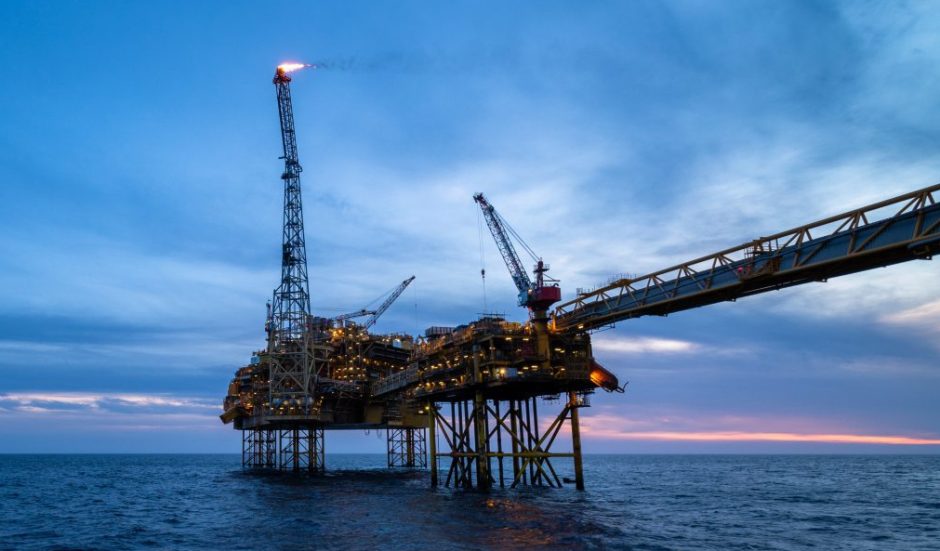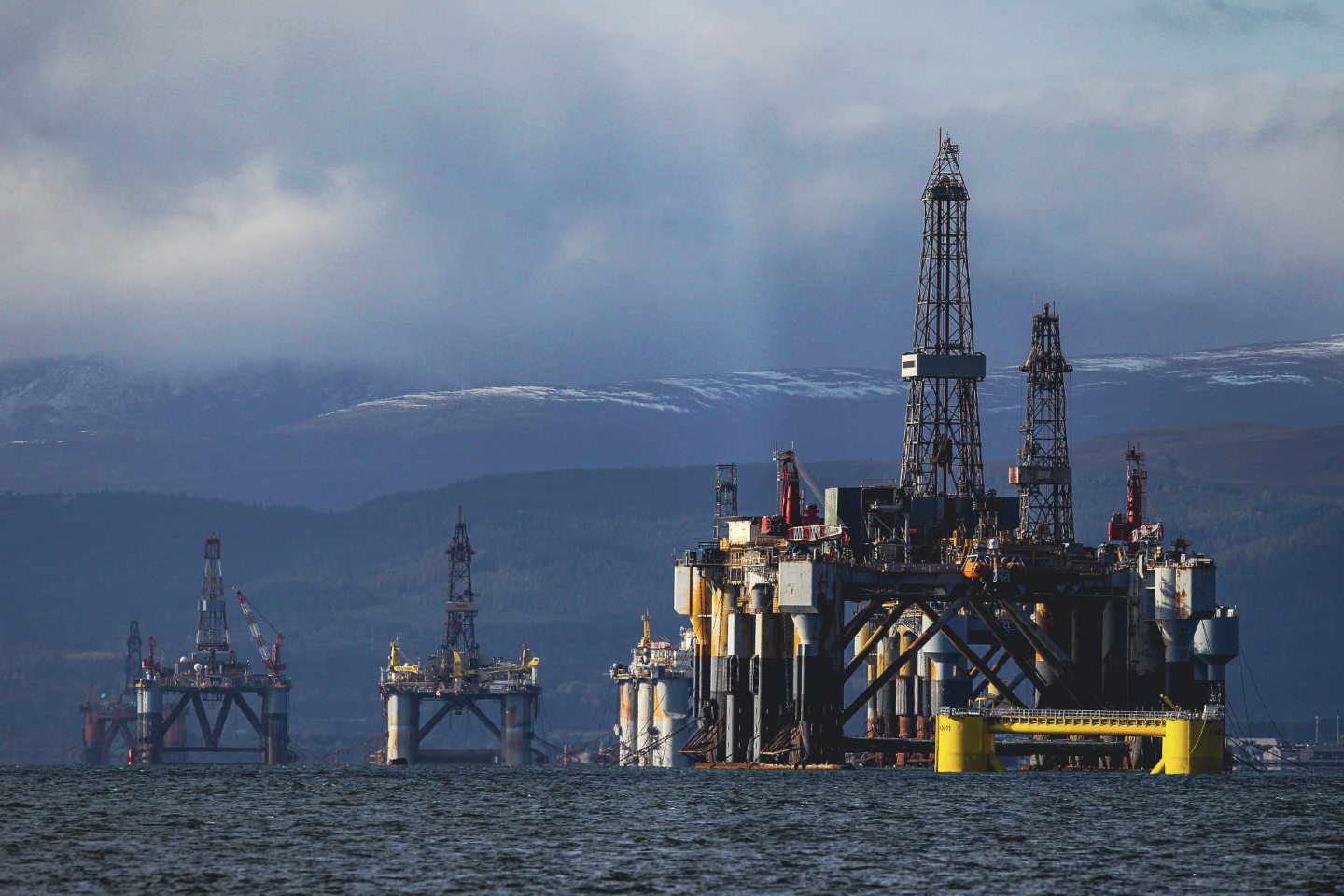
The UK government’s bill which aims to introduce annual North Sea oil and gas licensing rounds has come before the House of Commons for its second reading.
The Offshore Petroleum Licensing (OPL) Bill would amend legislation to invite applications for new North Sea exploration licences on a yearly basis.
The bill has generated significant debate since its announcement, with proponents arguing it will deliver energy security and secure thousands of jobs while its detractors argue it will make “little difference” and is merely a distraction.
Several Conservative backbenchers have rebelled against the bill, with former COP28 chair Sir Alok Sharma announcing he would vote against it.
Meanwhile, former chair of the government’s net zero review Chris Skidmore resigned from parliament in response to the bill.
North Sea bill ‘the right thing to do’
UK Energy Secretary Claire Coutinho said the bill will improve the energy security of the UK and Europe.
“But there’s not just energy security that dictates that we should use our own resources,” Ms Coutinho said.
“The economic case also shows that introducing annual licensing is the right thing to do.”
Ms Coutinho said the bill will provide the UK oil and gas sector the certainty it needed to encourage continued investment as well as further investment in renewable and low carbon projects.
Pointing to a recent study by Robert Gordon University which found thousands of jobs are at risk if the decline of the hydrocarbon sector is not properly managed, Ms Coutinho said the UK would lose thousands of skilled workers needed for the energy transition.
“If we do not manage that transition correctly, and everybody here agrees that we do need to transition, then we will lose those very important workers and their skills, because it is the same people who are working on oil and gas rigs today that we will need on the offshore wind farms of tomorrow,” she said.
“If we do not protect our world leading specialists, we will see communities decimated and ultimately a skills exodus which would put at risk the very transition that we are working so hard to achieve.”
‘Hypocrisy’ and ‘climate vandalism’
Meanwhile, Labour’s shadow secretary for climate change and net zero Ed Miliband delivered the response for the Opposition, calling the proposed bill “climate vandalism” and said it would make the UK look like “hypocrites” on the international stage.
“We face massive challenges as a country, but it’s not the scale of our problems that are so apparent today, it’s the smallness of [the government’s] response,” Mr Miliband said of the bill.
“A two-clause, risible bill that [the Energy Secretary] knows is not going to make any difference to our energy security.”
Mr Miliband said even with new licences, the UK’s North Sea gas production is set to fall by 95% by 2050.
Without new licences that figure would be 97%, he said, “the equivalent of four days of our current gas consumption”.
“So all of this codswallop about the idea that this is guaranteeing our energy security, that this is somehow going to guarantee these 200,000 jobs [in the UK oil and gas sector], is just risible nonsense”, Mr Miliband said.
Under a Labour government, Mr Miliband said the UK would continue on utilising existing North Sea fields investing in new offshore industries including wind, hydrogen and carbon capture and storage.
In addition, Labour would establish a national sovereign wealth fund and a public energy body, he said.
“This bill speaks volumes about a government out of ideas,” he said.
SNP supports bill amendment
Ahead of the Commons debate, the SNP urged MPs to support its amendment to the OPL, which the party said would ensure the bill could not proceed “until it provides a guarantee that an evidence-based assessment will be carried out on all new licences on a case-by-case basis”.
The SNP said in its current form, the OPL “fails to outline a clear transition away from fossil fuels as per the agreed resolution at COP28”.
It also does not “fully acknowledge the climate emergency or the demand for a reduction in domestic demand”.
The party’s Westminster energy security and net zero spokesperson Dave Doogan MP said: “Scotland is an energy rich country with the potential to be a powerhouse in the green and renewable sector.
“However, with Westminster continuing to undermine our progress, our long-term energy security is in jeopardy.
“Scotland has the energy, we just need the power.”
Government ‘dragging its feet’ on renewables
Environmental groups also criticised the proposed bill, with protests outside Westminster from Just Stop Oil activists.
🩺 Kush, a Doctor from London was one of the people outside Parliament today standing against the Offshore Petroleum Licensing Bill.
📢 Listen to the speech he gave here: pic.twitter.com/0h1VNddwaE
— Just Stop Oil (@JustStop_Oil) January 22, 2024
Uplift executive director Tessa Khan criticising the government for “playing politics with energy policy”.
“The government has admitted that this Bill will do nothing to lower energy bills, but it also knows that it won’t increase Britain’s energy security: the UK has burned most of its gas and the vast majority of our oil is exported,” Ms Khan said.
“When millions of people cannot afford to heat their homes, whether that’s pensioners, expectant mothers or families with young children, we need a government that’s serious about fixing our broken energy system.
“Building cheaper renewable energy and insulating leaky homes is the only way to lower bills permanently and achieve real energy independence, yet this government is dragging its feet on both.”
Offshore industry in support
Meanwhile, many industry leaders in the North Sea have welcomed the introduction of the OPL.
Following its announcement last year, Offshore Energies UK (OEUK) CEO David Whitehouse said: “The UK needs the churn of new licences to manage production decline in line with our maturing basin.
“A predictable licencing process with transparent checks will support the highly skilled people working in the sector, while ensuring the granting of new licences is compatible with energy security and net zero.”
He added: “While we continue to use oil and gas, we should prioritise our homegrown production to support our energy security, our economy, our jobs, and our world class supply chain that will be the foundation of our low carbon future.”
Ryan Crighton, policy director at the Aberdeen and Grampian Chamber of Commerce, said: “This is a welcome step from the UK Government, as it is an irrefutable fact that we will still need oil and gas in our energy mix all the way out to 2050 and beyond, albeit in decreasing amounts.
“So, part of the net zero and energy transition debate needs to be about where we get that oil and gas from. For the UK, that needs to be the North Sea.
“Where the alternative is importing oil or gas at a greater carbon cost, then we must favour domestic production.
“We believe that this line is pragmatic, as it commits us to sourcing the fossil fuels we need in a manner which minimises emissions and secures tens of thousands of Scottish jobs.”
What comes next?
Following today’s second reading of the OPL bill in parliament, it will head to committee before any amendments are discussed at the report stage and a third reading is held.
The bill would then make its way through the House of Lords before it could be granted Royal Assent – though at each stage there is scope for its progress to be waylaid.
Recommended for you

 © Supplied by Shutterstock
© Supplied by Shutterstock © Ewan Bootman/NurPhoto/Shutterstock
© Ewan Bootman/NurPhoto/Shutterstock © Supplied by OEUK
© Supplied by OEUK